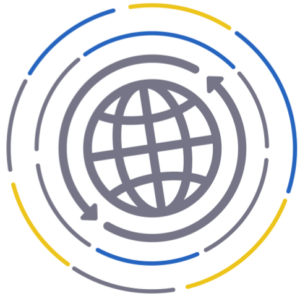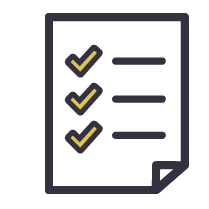The world is changing quickly:
- Cybercrime is growing exponentially. Since 2020 Canadians have lost over $1.63 billion due to fraud and that number is likely closer to $16 billion as only ~10% of fraud is reported.
- Privacy breaches feel like a daily occurrence. Since 2020 over 27 billion data records were exposed in Canada due to data breaches.
- As individuals we’re losing control of our data.
On the flip side, demand for digital transformation is growing.
- Canadians want to access their digital services and complete their transactions, anytime and anywhere for both convenience and inclusion reasons.
- Modern supply chains are experiencing a surge in automation, requiring greater assurances for authenticity, integrity, efficiency, and preventing counterfeiting or cyberattacks.

Digital credentials play a pivotal role in addressing these problems.
In today’s interconnected world, the importance of digital credentials cannot be overstated. Digital credentials are portable, highly secure, digital proofs about a person, place or thing. They prove the identity of an organization, person or thing, and/or they prove information about an organization, person or thing.
They are pivotal in countering cybercrime and fraud, enhancing privacy protection, and advancing digital inclusion.
DTLab is at the forefront of this critical domain, specializing in accelerating the delivery and adoption of digital credentials.
How do digital credentials make our digital interactions more secure, privacy protecting and inclusive?
A digital credential is a digital representation of information found in the digital credential’s physical counterpart – such as a government issued photo ID, a permit, proof that you are audit compliant, an employee badge, a financial statement, or a proof of business registration.
1. Security
Digital credentials are cryptographically signed and verifiable. This means that when you verify a digital credential using verification technology, your verification technology can automatically tell whether any of the data contained in the credential has been tampered with and the technology confirms who the issuer is. This means that you can trust the data provided because you know who issued it and that it hasn’t been forged or tampered with since it was issued.
2. Privacy protecting
Digital credentials can limit what information is shared. So rather than your organization asking to see the whole credential, the whole driver’s licence, the whole permit, the whole business registration, your organization only needs to ask for the information that you need and the person or organization sharing the credential keeps the rest of their information private.
3. Improving convenience and inclusivity
With digital credentials transactions are faster and easier to use. No need to manually vet emailed copies of IDs and other documents, or to ask for in-person visits for verification. You can do business and deliver services 24/7 so people can interact as it suits their schedule.
You can also better serve people who have a disproportionately difficult time doing business or accessing government services in-person, by phone or in regular work hours, for a litany of reasons:
- It may be too difficult to source transportation to get to your organization’s location.
- They may work shifts that don’t align with your opening hours
- They may need an interpreter if they aren’t fluent in English or French or an aid for individuals experiencing various disabilities.
Well designed online interactions supported by digital credentials open up a wide range of options for individuals with these types of barriers. They can now coordinate with friends and support structures when it works for them.
Take Action
- Learn more about digital credentials through our Digital Credentials Training Program
- Have a digital credential solution and interested in strengthening your product to advance your market position? Take a look at our assessment services.
- Interested in collaborating across the public, private, academic and civil society sectors to accelerate the implementation and adoption of digital credentials? Check out our co-created projects program.


